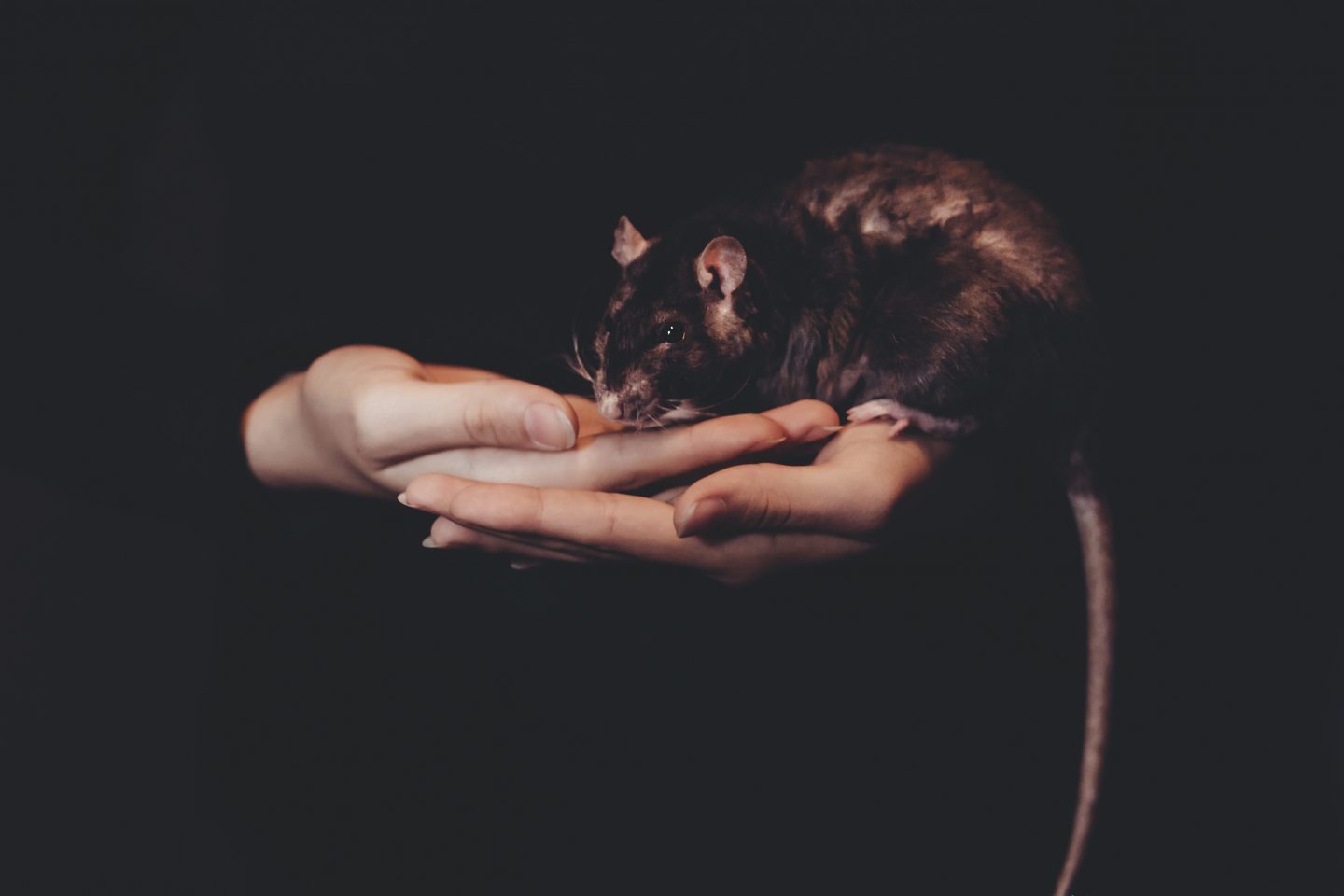In Mainz when corn was grown effective dear
By rats and mice which in huge swarms appear
The hypocritical bishop of the place
Did seem to pity much the people’s care
And them unto a gallant feast invited,
As if in charity he had delighted.
But when he had gotten them to his desire
He inhumanely set the barn on fire
And thus those wretched creatures all did die
For which his cursed soul in Hell did fry
Then, pointing to them burning, said look here,
These are the vermine who make our corn so dear
But see God’s judgments doth his wretch pursue
Which made him soon those cursed actions rue
For nasty rats still after him did run
Not to be scar’d by talisman or Gun
At last he built a tower in the seas
Hoping that there he might remain in peace
But infinite ugly rats did thither swim
And to his horrid pain devoured him
First let this teach us to compassionate
If we around those who disastrous fate
Have made them miserable, next we may see
From God’s avenging hand no place is free
For each despised reptile or insect
He can impower, when we his laws neglect.
Pope Alexander was choked with a fly
Sulla and Herod by a louse did die
*Cruel Popula and his cursed wife
*By the same dismal stroke did end their life.
T’is neither Earth nor sea nor air nor sky
To which a sad despairing soul can fly,
For should I take Auroras’ golden wings
And fly her shining circle still it brings
Me whence I came or should Night’s sable car
Me hurry where is neither moon nor star
Yet would my (glorious God) once raise
Of thine involve my soul in endless day
Then, seeing no place will hide my sins & me
I’ll from thy justice to thy mercy flee
The Grand and the Meek
By Anneliese Latona
Throughout the poem Pulter refers to strong people/gods being struck down by small insignificant animals (27-30). Pope Alexander being killed by a fly, Sulla and Herod being killed by a louse, etc. Even though these statements are untrue, she uses these strong people/gods being taken down by small bugs to symbolize God’s equal love for all living creatures and that no one is greater than anyone other than God who is greater than all. The overall moral of the poem being God’s mercy is grander than any one persons justice.
A Dictionary of World History (3 ed.)
Herod
Four rulers of ancient Palestine. Herod the Great (c.74–4 bc) ruled from 37 to 4 bc. He built the palace of Masada and rebuilt the Temple in Jerusalem. Jesus is thought to have been born during his reign; according to the New Testament (Matt. 2:16), he ordered the massacre of the innocents. Herod Antipas (22 bc–c.40 ad), son of Herod the Great, was tetrarch of Galilee and Peraea (4 bc–40 ad). He married Herodias and was responsible for the beheading of John the Baptist. According to the New Testament (Luke 23:7), Pilate sent Jesus to be questioned by him before the Crucifixion. Herod Agrippa I (10 bc–44 ad), grandson of Herod the Great, was king of Judaea (41–44 ad). He imprisoned St Peter and put St James the Great to death. Herod Agrippa II (27–c.93 ad), son of Herod Agrippa I, was king of various territories in northern Palestine (50–c.93 ad). He presided over the trial of St Paul (Acts 25:13 ff.).
Sulla (full name Lucius Cornelius Sulla Felix) (138–78 bc) Roman general and politician.
Having come to prominence as a result of military successes in Africa, Sulla became involved in a power struggle with Marius, and in 88 marched on Rome. After a victorious campaign against Mithridates VI Sulla invaded Italy in 83, ruthlessly suppressing his opponents. He was elected dictator in 82, after which he implemented constitutional reforms in favour of the Senate, resigning in 79.
(2015). Kerr, A., & Wright, E. (Eds.), A Dictionary of World History. : Oxford University Press. Retrieved 25 Nov. 2019, from https://www-oxfordreference-com.colorado.idm.oclc.org/view/10.1093/acref/9780199685691.001.0001/acref-9780199685691.
